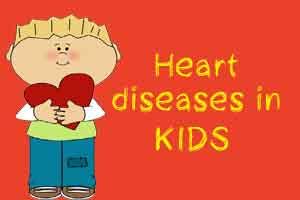- Home
- Editorial
- News
- Practice Guidelines
- Anesthesiology Guidelines
- Cancer Guidelines
- Cardiac Sciences Guidelines
- Critical Care Guidelines
- Dentistry Guidelines
- Dermatology Guidelines
- Diabetes and Endo Guidelines
- Diagnostics Guidelines
- ENT Guidelines
- Featured Practice Guidelines
- Gastroenterology Guidelines
- Geriatrics Guidelines
- Medicine Guidelines
- Nephrology Guidelines
- Neurosciences Guidelines
- Obs and Gynae Guidelines
- Ophthalmology Guidelines
- Orthopaedics Guidelines
- Paediatrics Guidelines
- Psychiatry Guidelines
- Pulmonology Guidelines
- Radiology Guidelines
- Surgery Guidelines
- Urology Guidelines
Kids run heart disease risk if pregnant mother on Higher fructose

New York : Would-be mothers please take note! Women who consume foods rich in fructose or fruit sugar levels can put their babies at risk of developing heart disease as adults, finds a new study.
"We found that when the mother has a high intake of fructose in her diet throughout pregnancy, her offspring is more at risk of developing adult obesity, high blood pressure and metabolic dysfunction, all of which are risk factors for cardiovascular disease," said lead author Antonio Saad from University of Texas, in US.
The findings revealed that higher levels of fruit sugar could also have an impact on future generations, and especially for female children.
The team investigated throughout pregnancy, the impact of higher levels of fructose consumption in mice on their offspring when they are adults.
When pregnant mice were exposed to water sweetened with fructose a common sweetener in foods and beverages their offspring showed several more risk factors for heart disease, compared with mice that only drank water throughout pregnancy.
Both female and male offspring in the fructose group exhibited peak glucose levels as well as higher blood pressure.
In addition, female offspring of the fructose group showed heavier and higher percentages of abdominal fat tissue, liver fat and insulin resistance as well as lower concentrations of leptin compared with their water group counterparts.
Previous studies have found a connection between fructose consumption and the rise in rates of cardiovascular disease, obesity and Type 2 diabetes.
The findings were detailed in the American Journal of Obstetrics and Gynecology.
The team measured the percent of abdominal fat tissue and liver fat using computed tomography, or CT, scanning in mice, which were fed only water or a 10 percent fructose drink that mimics the level of fructose in most soft drinks.
Limiting intake of high fructose-enriched foods and beverages during pregnancy may have a great impact on the child's future health, the researchers suggested.
The study could have worldwide implications for people because a large proportion of processed foods and carbonated beverages contain high-fructose syrup and other fructose-based sweeteners, they added.

Disclaimer: This site is primarily intended for healthcare professionals. Any content/information on this website does not replace the advice of medical and/or health professionals and should not be construed as medical/diagnostic advice/endorsement or prescription. Use of this site is subject to our terms of use, privacy policy, advertisement policy. © 2020 Minerva Medical Treatment Pvt Ltd